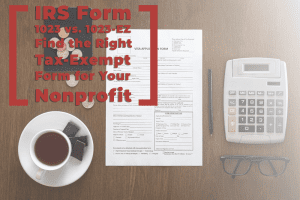When it comes to managing your finances, understanding the best tax-saving strategies for individuals and entrepreneurs can make a significant difference. Whether you’re managing your personal taxes or running a small business, there are practical steps you can take to reduce your tax liability and keep more of your hard-earned money. In this blog, we’ll cover the top 10 strategies that can help you achieve just that.
1. Maximize Retirement Contributions
One of the most effective tax-saving strategies for individuals and entrepreneurs is to contribute to retirement accounts. Contributions to a traditional IRA or 401(k) are typically tax-deductible and can reduce your taxable income.
Tip for Individuals:
- Contributing up to $6,500 (or $7,500 if you’re over 50) to a traditional IRA can lower your taxable income significantly.
Tip for Entrepreneurs:
- As a self-employed individual, you can take advantage of higher contribution limits with a SEP IRA or Solo 401(k), which can further reduce your taxable income.
For more information on retirement plans for small business owners, check out IRS Publication 560.
2. Take Advantage of Health Savings Accounts (HSAs)
HSAs offer a triple tax advantage that’s hard to beat: contributions are tax-deductible, the money grows tax-free, and withdrawals for qualified medical expenses are also tax-free.
Tip for Individuals:
- For 2024, you can contribute up to $3,850 for self-only coverage and $7,750 for family coverage. This is a great tax-saving strategy for individuals with high-deductible health plans.
Tip for Entrepreneurs:
- If your business provides a high-deductible health plan, an HSA is a powerful tool to manage both healthcare costs and taxes effectively.
3. Utilize Tax Credits
Tax credits directly reduce the amount of tax you owe, making them one of the best tax-saving strategies for individuals and entrepreneurs alike.
For Individuals:
- Explore credits such as the Earned Income Tax Credit (EITC), the Child Tax Credit, and education credits like the American Opportunity Credit.
For Entrepreneurs:
- Investigate credits such as the R&D Tax Credit (for research and development) and the Work Opportunity Tax Credit (WOTC), which rewards businesses for hiring certain groups of employees.
4. Deduct Home Office Expenses
If you work from home, you might be eligible for the home office deduction, which can save you a considerable amount on your taxes.
For Individuals and Entrepreneurs:
- You can claim a simplified deduction of $5 per square foot, up to 300 square feet. Ensure the space is used exclusively for work to qualify.
You may also like to read:
Maximizing Tax Savings by Hiring Your Kids for Small Business Success
Your kid can be a millionaire by 18 and save you ~$13,850 every year. Tax savings by hiring your kids in your small…
Read More

5. Keep Business and Personal Expenses Separate
One of the key tax-saving strategies for entrepreneurs is to separate business expenses from personal expenses. This makes tracking and claiming deductions much easier.
Tip for Entrepreneurs:
- Use separate accounts for business transactions to streamline your bookkeeping and tax preparation.
For more information on deductible business expenses, refer to the IRS guidelines in Publication 535.
6. Defer Income When Possible
Deferring income is a strategic move that can help reduce your current year’s tax liability by pushing income into the following year.
Tip for Entrepreneurs:
- Consider delaying invoicing until the beginning of the next year to keep more of your income out of the current tax year if you’re close to hitting a higher tax bracket.
7. Claim Depreciation on Assets
For those who own a business, claiming depreciation on assets can provide significant tax savings. Depreciation allows you to deduct the cost of business equipment over time.
Tip for Entrepreneurs:
- Use Section 179 to deduct the full cost of qualifying equipment in the year it’s purchased, which can be particularly beneficial for businesses with significant capital expenditures.
8. Explore Pass-Through Tax Breaks
If you run a business structured as an S-Corp, LLC, or sole proprietorship, you might be eligible for the Qualified Business Income (QBI) deduction, which allows for up to a 20% deduction on business income.
Tip for Entrepreneurs:
- Check your eligibility for the QBI deduction to potentially save on taxes, especially if your business income is substantial.
9. Review Your Filing Status
Selecting the right filing status can impact your tax outcome. For individuals, this decision can influence the amount of tax you owe.
For Individuals:
- Compare the benefits of filing jointly versus separately if married. Each option can have different tax implications.
For Entrepreneurs:
- Assess whether your current business structure is optimal for your tax situation and consider changes if necessary.
10. Plan for Charitable Contributions
Donations to charitable organizations are deductible and can lower your taxable income. This is a beneficial strategy for both individuals and entrepreneurs.
Tip for Individuals:
- Keep accurate records and receipts of all charitable donations to ensure you maximize your deductions.
Tip for Entrepreneurs:
- Consider donating excess inventory or making financial donations, which can benefit both your community and your tax situation.
For detailed guidance on how to deduct charitable contributions, you can refer to IRS Publication 526.
Conclusion
Implementing these top 10 tax-saving strategies for individuals and entrepreneurs can lead to significant tax savings and financial benefits. From maximizing retirement contributions to taking advantage of available tax credits, these tips can help you manage your taxes more effectively. For personalized advice tailored to your specific situation, consider booking a free consultation with our team at Taxfully.




